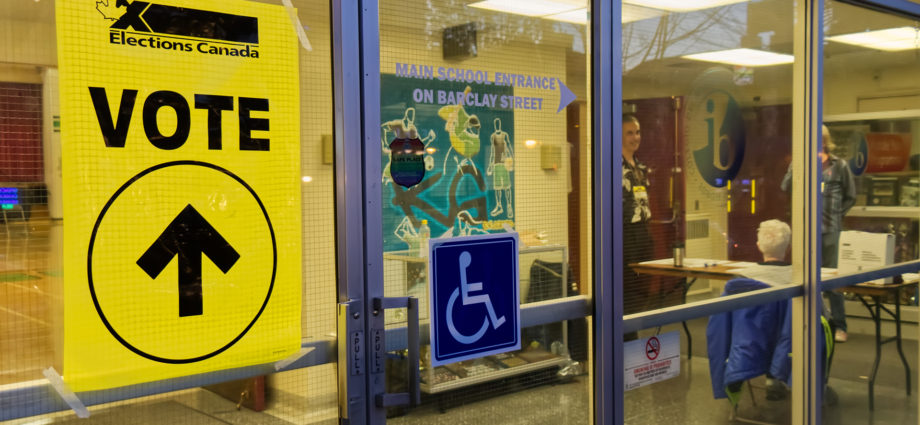
Michael Murphy, Queen’s University, Ontario
June 26, 2024
Election integrity is back in the news as Canadian political party leaders react to an explosive report released by a top-secret parliamentary committee.
Concerns about China interfering in Canadian elections emerged in February 2023. As a result, Justice Marie-Josée Hogue was tasked in September to lead a public inquiry on electoral integrity and foreign interference at the federal level.
Provincial governments have been touched as well, with allegations resulting in the exit of Vincent Ke, a member of provincial parliament, from the Ontario Progressive Conservative caucus. Ke has denied any wrongdoing and is suing a news outlet for defamation.
Less attention has been paid, however, to the integrity of municipal elections in Canada, despite CSIS reports of interference in Vancouver’s 2022 election. Vancouver Mayor Ken Sim says he rejects any insinuation of foreign interference playing a role in his victory.
Why do municipal elections matter?
In Ontario, municipal elections take place every four years to select mayors, councillors, school board trustees and other municipal leaders. Each local election is supervised by the local municipal clerk, usually a permanent member of the administrative staff in the municipal government.
During the period of the election, these public servants take on additional responsibilities to ensure the smooth operation of municipal elections. The legal framework guiding municipal elections is set by the provincial government.
City, town, township and county councils are common forms of municipal government. Municipal governments touch the lives of all citizens because of the local services they provide, such as waste management, water treatment and snow clearing.
More recently, city councils are becoming more important because of their power over housing supply. City councils set out zoning bylaws and decide on amendments or adjustments as necessary. As the soaring cost of housing has become one of the primary drivers of a nationwide cost-of-living crisis, the importance of city councils has never been greater.
School boards are another important form of municipal government. School boards are the local decision-makers for the education system. Although publicly funded education systems play a major role in our lives — nearly 93 per cent of Ontario students attend public schools, for example — school boards have generally received less attention than other levels of government.
One important trend against this has been the growing importance of school boards in so-called “culture war” issues, which have been a flashpoint for online disinformation campaigns that seek to inflame tensions around election time. This can lead to further political polarization.
Why are municipal elections vulnerable?
Despite the importance of municipal elections, they remain vulnerable. As noted above, the key people who make municipal elections work are not election professionals but instead public servants whose day-to-day responsibilities often involve many other tasks.
Especially in smaller municipalities, this means there’s limited capacity to investigate issues that arise during election campaigns. Often, complaint-driven processes are the only option.
A second issue that makes municipal elections vulnerable (in Ontario, Nova Scotia and the territories) is the prevalence of online voting. The security threats to online voting are well-established, and as electoral technology scholars Aleksander Essex and Nicole Goodman point out: “In Canada, no minimum cybersecurity standards or procurement guidance exist for election technology, including electronic voting.”

Historically, advocates for online voting have argued that the increased ease of voting would lead to better participation and a stronger democracy, despite the risks. However, recent research has debunked this argument. It found that in practice, municipalities see a novelty bump when online options are added, but it disappears in subsequent elections.
Despite the best of intentions to make voting more accessible, we see now that Ontario municipal elections have taken on all of the risks of online voting with little of the gain promised.
Two solutions
There are two years until municipal elections cycles will begin again in Ontario, Canada’s most populous province. Now is the time for the province to safeguard the integrity of those elections.
Although some higher-level concerns around social media and misinformation fall more directly in the domain of the federal government, there are two ways the province can address the vulnerabilities created by low staffing and online voting:
- It could establish an office of municipal electoral integrity within the Ministry of Municipal Affairs and Housing. This office could co-ordinate lessons learned from local elections taking place in 2024 (in Saskatchewan, Nova Scotia, Yukon and parts of the Northwest Territories), 2025 (Alberta, Québec, New Brunswick, Newfoundland and Labrador and parts of the Northwest Territories), as well as earlier in 2026 (British Columbia and parts of Prince Edward Island and the Northwest Territories) to prepare understaffed elections offices and help them to troubleshoot problems as they emerge. The development of a permanent staffed election office (like Elections Canada or Elections Ontario) is unlikely to be feasible in many municipalities. As the Vancouver 2022 case highlighted, even large cities lack the capacity to investigate interference in real time.
- The Ontario and Nova Scotia governments could introduce amendments to their Municipal Elections Act to pause online voting until cybersecurity concerns can be addressed. This would follow recent steps taken in Québec, which paused an online voting pilot project that would have taken place in the 2025 municipal elections. When we believed online voting would strengthen democracy by increasing participation, the risks may have been worth it. With the benefit of real-world research and heightening political tensions, online voting means all risk with no reward. Strengthening democracy today means a pause on online voting, at least for now.
Michael Murphy, Banting Postdoctoral Fellow, Political Science, Queen’s University, Ontario
Subscribe to our newsletter.
This article is republished from The Conversation under a Creative Commons license. Read the original article.


